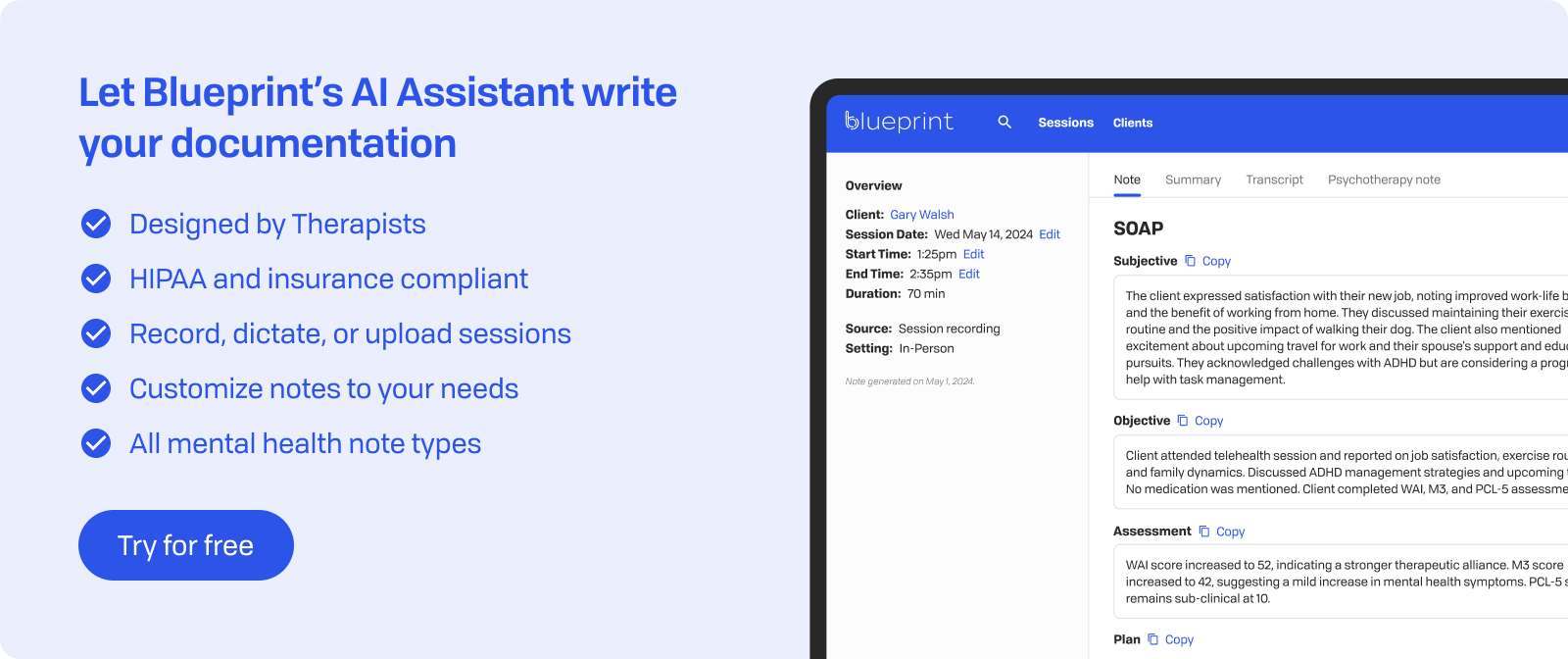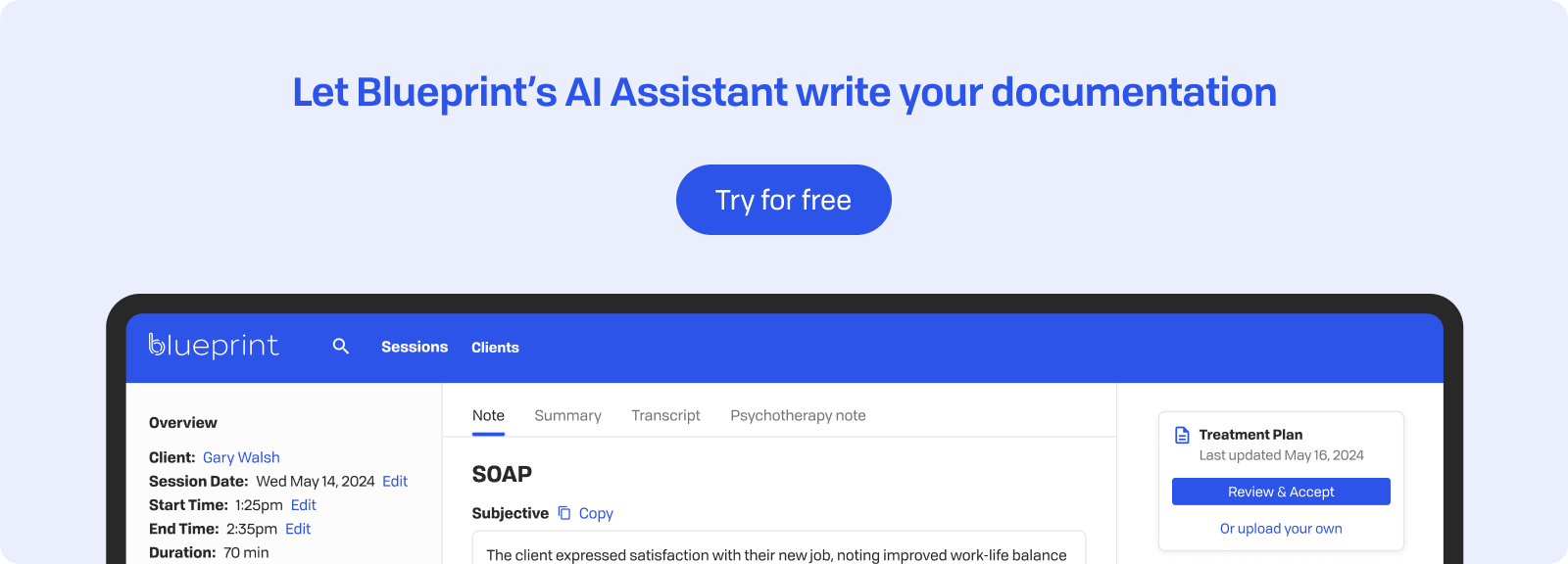In Brief
A mental health professional's journey doesn't have to follow a straight path. Many therapists reach crossroads in their careers, contemplating alternative directions that might better use their skills and compassionate nature. Whether you feel overwhelmed by emotional labor, want new challenges, or are simply curious about other possibilities, looking into related careers can be both validating and enlightening.
Your therapeutic training equips you with a unique set of skills that reach far beyond the therapy room. Your ability to connect with others, handle complex emotional situations, and facilitate meaningful change translates well into various professional contexts. Skills like empathy, active listening, ethical awareness, and reflective judgment lay the groundwork for many rewarding careers in helping professions.
Exploring alternative paths doesn't mean abandoning your identity as a helper. It's about recognizing that your impact can take many forms. Some therapists find renewed passion by shifting focus, while others prevent burnout and enhance their primary practice by branching out. The key is to align your strengths, lifestyle preferences, and evolving professional identity with opportunities that match your current life stage.
Career Options Within the Mental Health Ecosystem
Psychologist: This role focuses on assessment, research, and clinical intervention and requires a doctorate degree. Psychologists have diverse opportunities in academia, hospitals, research institutions, and private practice settings. Additional training opens doors to specialized testing, forensic work, and leadership positions in mental health organizations.
Clinical Social Worker (LCSW): LCSWs combine therapeutic skills with case management, advocacy, and systems-focused interventions. They often work in community mental health centers, hospitals, schools, and government agencies. This path attracts therapists who want to address both individual healing and broader social justice issues.
Marriage & Family Therapist (MFT): MFTs focus on relational and systemic interventions, working with family dynamics and couples. This credential allows for deep work with relationship patterns and intergenerational healing. Many therapists find this specialization revitalizes their practice by shifting from individual to relational frameworks.

Adjacent Roles With a Therapeutic Skillset
Mental Health Coach: This role provides solution-focused support without formal diagnosis or treatment, making it ideal for therapists who enjoy motivational, goal-oriented work. Mental health coaches concentrate on personal development, behavioral changes, and wellness from a coaching angle. The path generally involves:
- An associate's degree or higher (fields related to psychology can be beneficial but are not necessary)
- Completion of a recognized mental health coaching training program
- Completing at least 50 supervised coaching sessions
- Passing the National Board Certification Exam for health and wellness coaching
Counselor Educator or University Instructor: Teaching future therapists combines clinical experience with an interest in academia. This path suits therapists who appreciate mentorship and wish to influence the next generation of mental health professionals. Most positions require a master's or doctoral degree in counseling or related fields, along with several years of clinical experience. Responsibilities include developing curricula, supervising practicum students, and conducting research while maintaining ties to the field through part-time practice or consultation.
Clinical Supervisor or Consultant: Supporting early-career therapists through supervision allows you to extend your impact across multiple clinicians and their clients. Clinical supervisors guide professional development, ensure ethical practice, and assist newer therapists in handling complex cases. Consultants work with clinics and organizations on program development, quality improvement, and specialized treatment approaches. These roles typically require advanced licensure, specialized training in supervision, and extensive clinical experience. Many therapists find this work fulfilling as they observe growth in other professionals while staying connected to direct client care.
Organizational & System-Level Opportunities
Employee Assistance Program (EAP) Counselor: EAP counselors offer short-term support for workplace-related stress, personal issues affecting job performance, and behavioral concerns. This role suits therapists who enjoy brief, solution-focused models and workplace settings. EAP counselors typically conduct 3-8 session interventions, provide crisis support, and make referrals to longer-term resources. The position requires strong assessment skills and the ability to balance employee confidentiality with organizational needs. Many therapists value the variety of issues they encounter and the preventive nature of EAP work.
Corporate Wellness Specialist: This role allows therapists to shape organizational culture and systems through comprehensive wellness programming. Corporate wellness specialists:
- Design and implement mental health education workshops on stress management, resilience, and work-life balance
- Assess employee wellness needs through surveys and data analysis
- Develop programs that integrate mental health into overall wellness initiatives
- Coordinate with vendors and health partners to provide resources
- Monitor program effectiveness and results through participation metrics and outcome data
The position combines therapeutic knowledge with program management skills, giving therapists a chance to impact entire workforces rather than individual clients.
Nonprofit Program Director / Community Advocate: Managing mental health initiatives in community settings appeals to therapists passionate about systemic change and social justice. Program directors oversee service delivery, grant writing, staff supervision, and community partnerships. They develop innovative programs addressing gaps in mental health services while advocating for underserved populations. This path requires strong leadership abilities, budgeting skills, and comfort with administrative responsibilities alongside direct service knowledge.

Specialized Intervention Roles
Trauma Therapist / EMDR Practitioner: Focusing on trauma work helps therapists gain expertise in assisting clients to process and heal from traumatic experiences. This path involves:
- A master's degree and an active independent license in a mental health field
- Specialized trauma certification training (typically 12-90 hours)
- Additional training in specific approaches like EMDR, Somatic Experiencing, or trauma-focused CBT
Popular certifications include the Certified Clinical Trauma Professional (CCTP) and credentials from the Trauma Institute International. Trauma specialists work in various settings such as private practice, veterans' services, crisis centers, and specialized trauma treatment facilities. The work requires emotional resilience and strong self-care practices, but it also provides meaningful opportunities to support healing and growth after trauma.
Addiction Counselor: This role centers on substance use treatment, relapse prevention, and supporting individuals through recovery. Most states require specific addiction counseling credentials in addition to general therapy licensure. The responsibilities include conducting assessments, leading group therapy, developing treatment plans, and coordinating with medical professionals. Addiction counselors work in places like rehabilitation centers, outpatient clinics, correctional facilities, and private practice settings.
Child and Play Therapist: Working with children calls for unique skills in developmental psychology and creative therapeutic approaches. Child therapists use play, art, sand tray, and other expressive methods to help young clients process emotions and experiences. This specialization attracts therapists who enjoy working with families and value the non-verbal aspects of healing. Additional training in play therapy techniques and child development enhances effectiveness in this rewarding field.

Entering Alternative Settings with Common Skill Foundations
School Counselor: Supporting students' academic and emotional development gives therapists an opportunity to work preventively with youth. Transitioning into this role requires obtaining state-specific school counseling certification, which typically involves:
- Completing an approved master's program in school counseling (if your current degree doesn't qualify)
- Accumulating supervised practicum hours in educational settings
- Passing state certification exams
- Adapting to brief counseling models versus long-term therapy
School counselors manage large student caseloads while providing crisis intervention, academic guidance, and connecting families with resources. The role focuses on prevention, early intervention, and collaboration with teachers and administrators.
Corrections & Rehabilitation Counselor: Working within justice systems uses therapeutic skills to facilitate behavioral change and support reintegration. This setting requires strong boundaries, trauma-informed approaches, and comfort with mandated treatment dynamics. Corrections counselors conduct assessments, lead group therapy, develop treatment plans addressing criminogenic factors, and coordinate with probation officers. The work demands emotional resilience and the ability to maintain therapeutic rapport while navigating security protocols and institutional constraints.
Healthcare-Based Mental Health Clinician: Integrated care settings allow therapists to provide psychotherapy within medical teams. These roles involve:
- Conducting brief interventions in primary care offices
- Collaborating with physicians, nurses, and specialists
- Addressing psychological factors affecting medical conditions
- Providing same-day consultations for medical patients
Healthcare settings value therapists who communicate effectively across disciplines, work efficiently in fast-paced environments, and understand the mind-body connection. Many find this setting fulfilling as they see immediate impact on patients' overall health outcomes while maintaining close collaboration with medical professionals.

Navigating a Shift: Considerations for Career Transition
Changing careers requires an honest evaluation of what truly matters to you. Think about these key areas:
- Values alignment: Does your current role reflect your core beliefs?
- Pace preferences: Do you thrive in fast-paced crisis work or prefer longer-term therapeutic relationships?
- Income models: Are you comfortable with insurance-based practice or productivity models? Or do you prefer salary stability?
- Client populations: Which age groups or presenting concerns energize versus drain you?
- Professional autonomy: How much independence do you need in clinical decision-making?
Different roles require varying credentials and licensing adjustments. Look into specific requirements early, as some transitions involve substantial additional training. For example, becoming a school counselor typically requires state-specific certification beyond your therapy license. Moving into EAP work might need specialized training in brief intervention models. Some states have reciprocity agreements for licenses, while others require starting the process anew.
Before fully committing, test potential paths through:
- Informational interviews with professionals in your target field
- Professional development workshops to explore new modalities
- Short-term contracts or per diem work in different settings
- Volunteer experiences that expose you to new populations or approaches
Your therapeutic training provides valuable skills that employers across settings appreciate. Your diagnostic clarity helps in assessment-heavy roles. Ethical reasoning translates well to organizational consulting. Systemic thinking benefits program development positions. Documentation proficiency serves you in any healthcare or educational setting. These competencies form a strong foundation for whatever direction you choose.
Key Takeaways
The therapeutic profession equips you with a base of transferable skills that open doors to many fulfilling career paths. Your training in empathy, insight, and client-centered care creates opportunities across diverse professional settings, each offering unique ways to make a meaningful impact.
Career alternatives span three main categories:
- Expanded clinical roles: Positions like Psychologist, Marriage & Family Therapist, and Clinical Social Worker allow deeper specialization while maintaining direct client contact.
- System-oriented positions: Roles such as EAP counselor, corporate wellness specialist, and nonprofit program director enable broader organizational impact beyond individual therapy.
- Specialty niches: Fields like trauma therapy, addiction counseling, and child/play therapy offer focused expertise in specific populations or treatment modalities.
Successful transitions require careful planning and self-awareness. Start with clarifying your values to identify what truly matters in your work—whether that's autonomy, income stability, specific populations, or work-life balance. Research licensing requirements early, as many roles demand additional certifications or supervised hours. Test potential paths through informational interviews, volunteer work, or short-term contracts before making permanent changes.
Exploring alternative careers doesn't diminish your identity as a helper. These transitions can often renew professionals who feel stagnant, prevent burnout through variety, and enhance your impact across different systems and populations. Whether you're seeking renewal, preventing compassion fatigue, or simply curious about possibilities, the skills you've developed as a therapist serve as a strong foundation for meaningful work in multiple contexts. Your ability to understand human behavior, facilitate change, and maintain ethical boundaries serves you well wherever your career journey leads.











